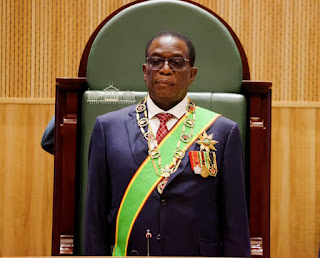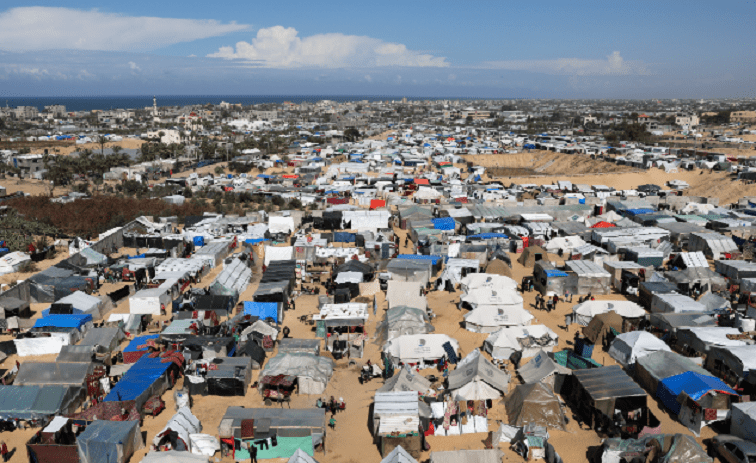Harare Pleads With Mnangagwa To Stay Beyond 2028
By A Correspondent
As Zimbabwe’s 2023 election cycle comes to a close, a curious political development is unfolding in Harare.
ZANU PF’s Harare Province has recently called on President Emmerson Mnangagwa to extend his rule beyond his current term, an unexpected plea that has raised eyebrows across the political landscape.
While party officials present this as a grassroots call for the extension of Mnangagwa’s leadership, sources suggest that this may be part of a calculated move orchestrated by the President himself to consolidate power and secure his legacy.
At a recent inter-district meeting in Domboramwari, Epworth, Cde Charles Tavengwa, the ZANU PF Secretary for Education, Research, and Ideology, stated that the call for an extension was based on widespread sentiment from the party’s base. Tavengwa mentioned that the Harare Province had echoed a desire for Mnangagwa to remain in office until 2030 to complete his vision of transforming Zimbabwe into a modern, empowered, and prosperous country.
“We are talking about issues affecting women, the youth, war veterans, and the economy. These were all explained to the people, and they expressed a clear desire for the President to extend his term to fulfill his vision.
The infrastructure development, the empowerment initiatives, and the attention to people’s needs have made them feel that the President should continue beyond 2028,” Tavengwa told party members.
Despite Tavengwa’s attempt to frame the call as a response to popular sentiment, many observers believe that the push for an extension is more a political maneuver than a genuine grassroots initiative. Some speculate that Mnangagwa himself is behind this orchestrated move to create a narrative of overwhelming support for his continued rule. By framing the call for an extension as a collective desire from within the party and the public, Mnangagwa could justify his stay in power, portraying any opposition to his rule as a challenge to national progress.
The timing of the plea also raises questions. As Zimbabwe’s economic and infrastructural challenges continue to mount, Mnangagwa has faced growing scrutiny for his handling of the country’s development. His administration has been unable to overcome many of the problems inherited from the Mugabe era, and there are fears that his leadership might fail to deliver on promises made during his rise to power. Extending his term would give Mnangagwa more time to address these shortcomings, while simultaneously allowing him to maintain political control.
Tavengwa’s comments also hinted at the political fallout from the recent 21st National People’s Conference in Bulawayo. While Tavengwa suggested that the conference had endorsed the term extension, many believe that the President’s loyalists used the event as a platform to push for this agenda. By securing the backing of key party structures, Mnangagwa may have laid the groundwork for a shift in Zimbabwe’s political trajectory — one where he holds onto power for a longer period than originally intended.
The push for an extension is also framed as necessary for the continuation of large-scale infrastructure projects, particularly in areas like Epworth, where the government is working to address water shortages by connecting pipelines from Muchekeranwa Dam. These efforts, Tavengwa argues, are part of Mnangagwa’s larger vision to create a more prosperous Zimbabwe. However, critics argue that these projects have been insufficient and that many of them have stalled under the current administration.
By positioning himself as the only leader capable of seeing through these ambitious projects, Mnangagwa can leverage such initiatives to justify his desire for an extended mandate. The extension, therefore, may be more about protecting his political future than fulfilling a national vision.
As the debate continues, it remains to be seen how Zimbabweans and opposition parties will respond to Mnangagwa’s apparent maneuvering. While ZANU PF structures may publicly support the President, critics will argue that any attempt to extend his rule beyond 2028 represents a power grab rather than a democratic evolution. In the coming months, the political battle in Zimbabwe will likely intensify, as the country confronts the question of who will lead it into the future.
Related
#Harare #Pleads #Mnangagwa #Stay #ZimEye



